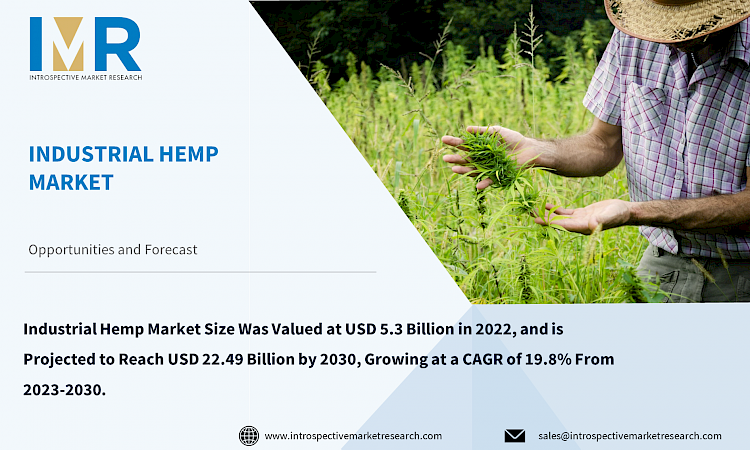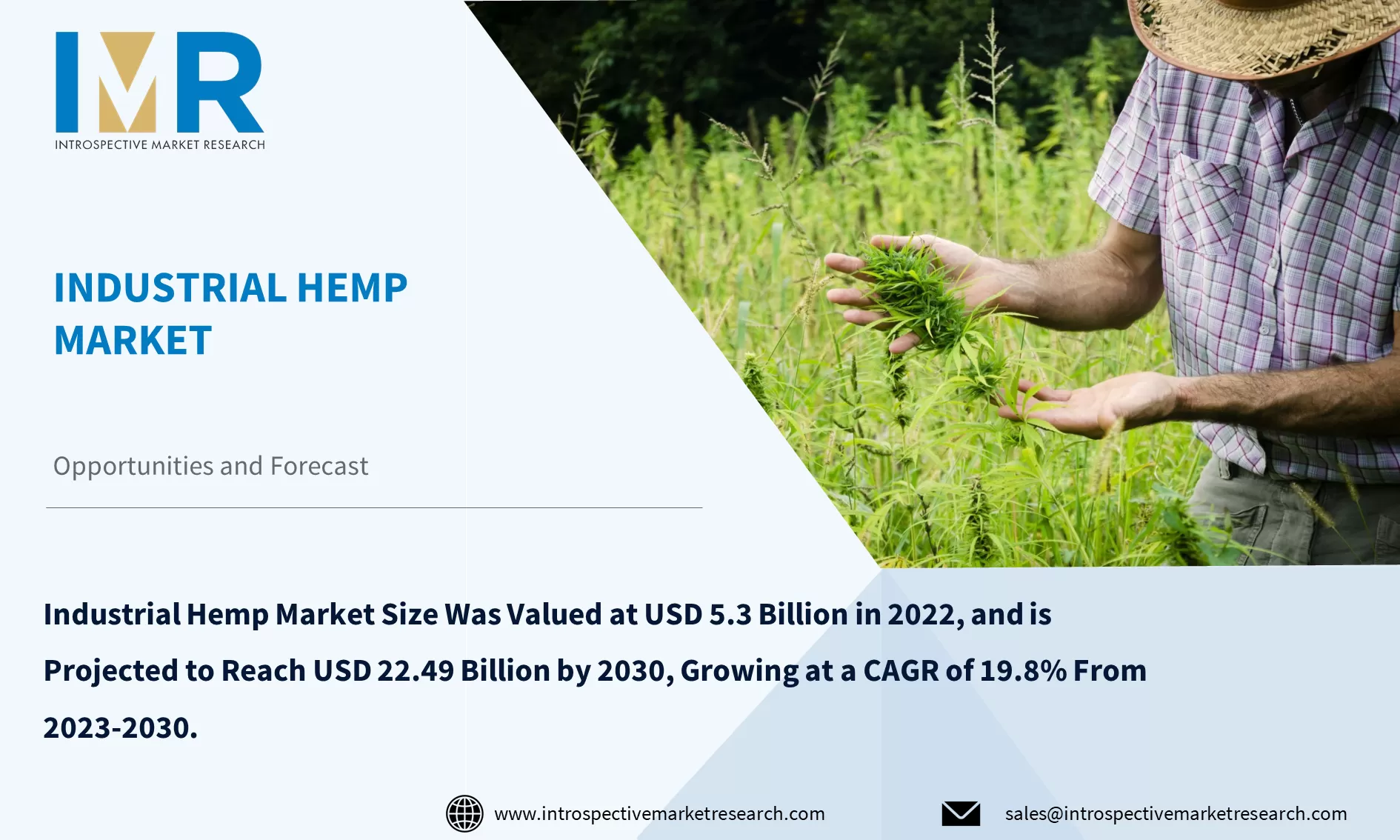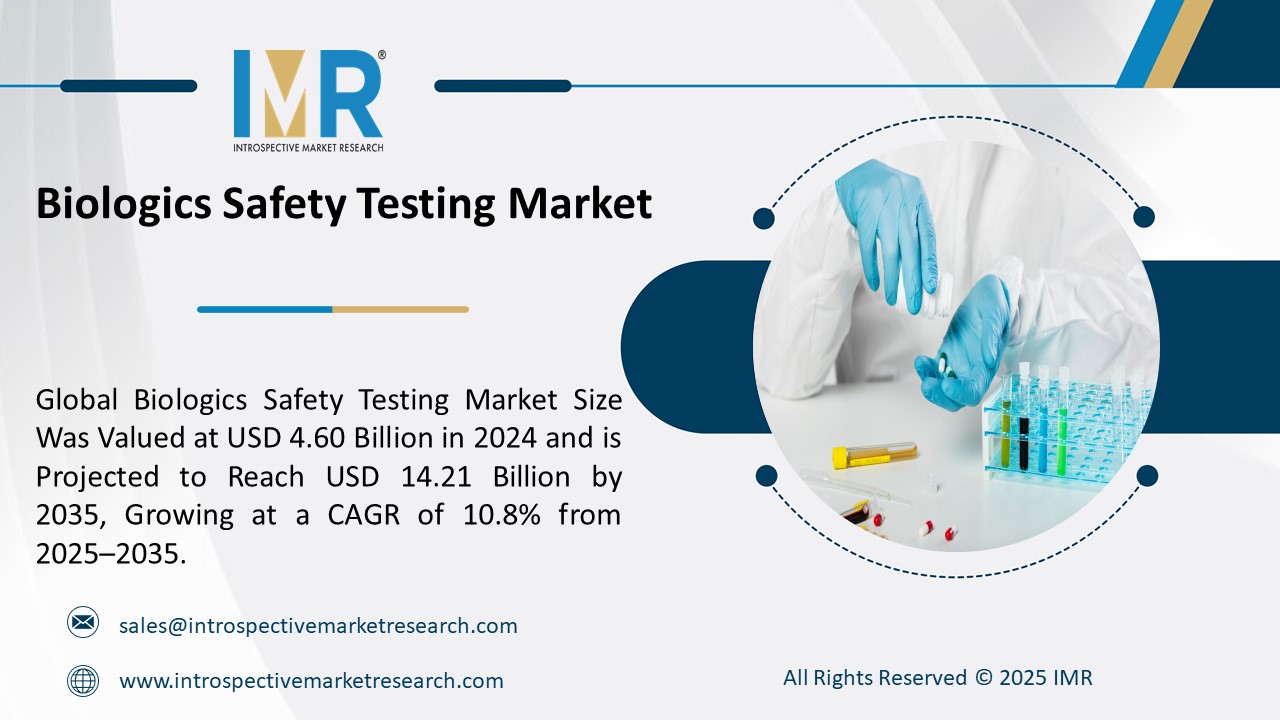 0
0
Industrial Hemp Market Size Was Valued at USD 5.3 Billion in 2022, and is Projected to Reach USD 22.49 Billion by 2030, Growing at a CAGR of 19.8% From 2023-2030.
Industrial hemp is a robust annual herb that is cultivated for premium fiber and nutritious seeds. Renowned for its durability, the plant finds extensive application in cordage production like ropes, twines, and cables, as well as diverse products including textiles, paper, insulation, and bio-plastics. Its environmentally friendly cultivation without harmful chemicals makes it a preferred source for food, beverages, and non-food items.
Offering renewable resources for plastics, paper, and fuel, over 30 countries, including China, France, and Canada, engage in industrial hemp production. Despite misconceptions with marijuana, legal barriers are diminishing globally due to heightened public awareness and increased demand. With multifaceted benefits and growing recognition, the industrial hemp market anticipates sustained expansion in the coming years, driven by its eco-friendly versatility and applications across various industries.
Top Key Players for Industrial Hemp Market:
Parkland Industrial Hemp Growers Cooperative Ltd. (Canada), CBD Biotechnology Co. (US), Botanical Genetics LLC (US), Marijuana Company of America Inc. (US), HempMedsBrasil (US), and other major players.
Market Dynamics and Factors for Industrial Hemp Market:
Drivers:
Greater Utilization of Hemp for Paper and Textiles, In Construction & In CBD Products
Industrial hemp's focus on paper and textile fibers, coupled with its cost-effectiveness compared to other sources, and its burgeoning utilization in construction, furniture, and automotive sectors, are projected drivers for the hemp market. Expanding applications including paper, insulation, home furnishing, and CBD products due to growing consumer awareness of health benefits propel market growth. Legalized cultivation in the US emphasizes CBD's importance, further boosting industrial hemp's prospects.
Opportunities:
Increasing Legalization of Hemp Across Several Parts of The World
The industrial hemp market stands at the brink of transformative growth, propelled by the wave of increasing legalization. As exemplified by the United States' shift in 2018, where hemp cultivation was effectively legalized after decades of prohibition, the legal barriers surrounding hemp cultivation are gradually dissipating, paving the way for a flourishing market. Developing countries, in particular, stand to harness significant benefits from this trend. The global hemp market is projected to reach $18.6 billion by 2027, marking an impressive growth trajectory from $4.6 billion in 2020. By aligning with the global momentum towards hemp's legality, these nations can unlock new avenues for economic prosperity.
Segmentation Analysis of the Industrial Hemp Market:
- By Product Type, the hemp fibre segment dominates the market which is particularly prized in the pulp, paper, and textile industries due to its durable, lengthy fibers compared to cotton, making it a superior choice for outerwear with three times the tensile strength of cotton. Its blendability enhances comfort while retaining strength, and its minimal environmental impact further makes it a sustainable choice.
- By Applications, the food segment holds the largest share which is attributed to versatile hemp seeds and hemp seed oil, enriched with protein, vitamins, and omega-3 fatty acids. Their popularity as toppings, in cereals, smoothies, and raw consumption drives rapid growth. Notably, CBD oil's surge, driven by muscle relaxant, anti-anxiety, and high-nutrition demand, contributed to the sector's remarkable expansion
Regional Analysis of the Industrial Hemp Market:
Europe is poised to secure a substantial share in the Industrial Hemp Market, driven by surging demand for hemp-based products, heightened awareness of health benefits, and evolving government policies. Its versatile strength and aesthetic properties find applications in bio-composites, paper, textiles, and eco-friendly construction materials, further propelling market growth.
Key Industry Development:
- In March 2023, Senators Tester (D-MT) and Braun (R-IN) introduced the Industrial Hemp Act of 2023 (S.980) to alleviate barriers for U.S. farmers entering the hemp industry. Recognizing hemp's growth, the Act exempts grain and fiber hemp from burdensome regulations, aiding rural America's economy and tapping into a thriving agricultural market.
- In June 2022, Kemin Industries, a global ingredient manufacturer, unveiled Luxiva? hemp cannabidiol (CBD) distillates, expanding their portfolio with high-quality, USDA-certified organic hemp CBD distillates. These products, sourced and produced in the heartland of America, have earned certification from the United States Department of Agriculture (USDA).
- In December, 2021, Marijuana Company of America Inc. Acquires VBF Brands, Inc. Expanding Footprint in California?s Growing Cannabis Grower Market. This move will work towards increasing production at a nearby Salinas based facility that also offers exponential growth opportunities with other nearby land and facilities.





